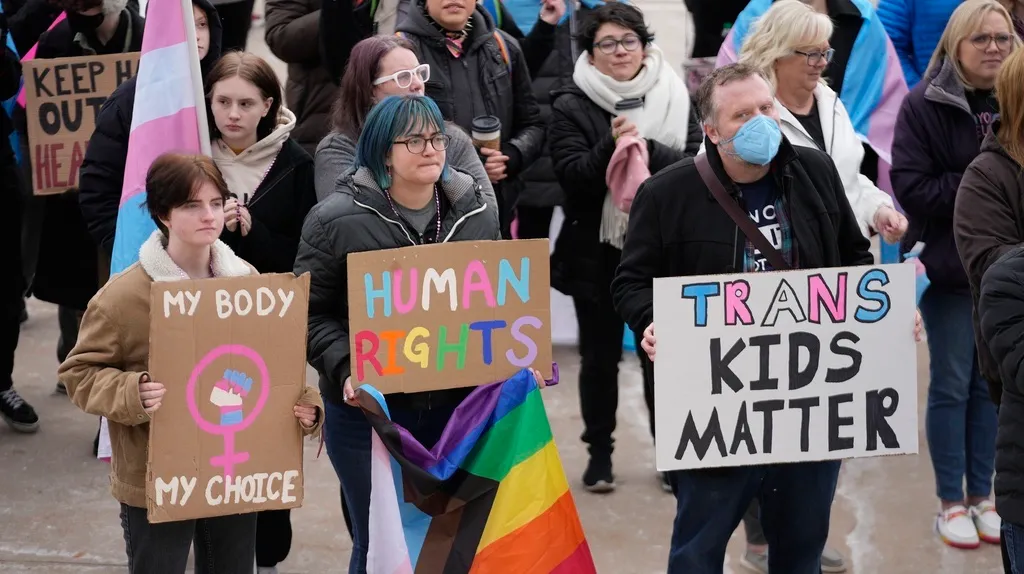April 10, 2012
Member of Panel to Appoint Anglican Head Challenged Over 'Gays Can Change' Stance
Jason St. Amand READ TIME: 3 MIN.
A prominent member of the Church of England who is on the Crown Nominations Commission, which will recommend who should replace the Archbishop of Canterbury, said that he believes gays can suppress or change their sexual attraction through counseling, U.K. newspaper the Guardian reported.
The statements have brought concern to some liberal Anglicans who are worried that his remarks could drive a wedge between those who support that the church should hold gay civil ceremonies and those against it.
Glynn Harrison, emeritus professor of psychiatry at Bristol University, has written recent articles that criticize gay relationships, saying they "fall short of God's purpose in creation." He also says that therapy and "pastoral ministry" may help clergy who want to have a gay relationship but feel that it is unchristian. "There is evidence that some people with unwanted same sex attractions can achieve significant change," Harrison said.
In a statement issued after his past views were aired, Harrison argued that he does not believe in a "gay cure" and has never offered formal counseling or therapy himself.
Rev. Colin Coward the director of Changing Attitude, a group for the LGBT Anglican community, said Harrison's views are "cranky in the extreme." But the retired professor's supporters say that his beliefs on homosexuality are shared with a number of Anglicans and that it would not be possible to elect an archbishop without someone with his viewpoints.
Nevertheless, Coward does not believe Harrison should be on the committee.
"It seems the church is trying to give equal weight to those against homosexuality as those who are for it. In 21st-century British society this is insane," Coward said. "I think the next archbishop needs to be chosen by somebody who is fully confident with lesbian, gay, bisexual and transgender people in the church, because the church stance on this has to change radically. The presence of somebody like Glynn Harrison on the commission really is unacceptable."
Last year, the professor co-authored an article entitled "Unwanted same-sex attraction: Issues of pastoral and counseling support." The Christian Medical Fellowship published the story, which states, "People with unwanted SSA [same sex attraction] who seek to live in conformity with their beliefs should be free to receive appropriate and responsible practical care and counsel. Most may choose counseling and pastoral support to maintain, within a Christian framework, the disciplines of chastity. Others may wish to explore the possibility of achieving some degree of change in the strength or direction of unwanted sexual interests."
The Guardian notes that Harrison refused to explain his views but approved a statement by the Church of England that said he "does not believe in the concept of 'gay cure' or 'gay conversion' and has never been involved in offering any formal counseling or 'therapy' in this area himself".
"Prof Harrison also notes however that there are anecdotes in the research literature, and in popular media, about individuals who have experienced some degree of change in either the strength or direction of their sexual attractions," the statement continued. "It also added that Harrison recommends "considerable caution" in regards to the therapy because there is not substantial evidence if the treatments work."
Canon Giles Goddard, chairman of the Inclusive Church movement, also condemned Harrison's views and said that suggesting that gays can change their sexual orientation through therapy was "dangerous."
"These views have caused damage in the past for people who have got caught up in reorientation programmes," Goddard said. He went on to say that he believes Harrison would choose the best candidate for archbishop, however.
"I am sure Glynn [Harrison] will make sure the best person is appointed to the job [of archbishop], regardless of his personal views."
Rev. Peter Ould, who also backs Harrison's beliefs and is a writer on Christianity and sexual identity, said that the professor's position was not radical and all different viewpoints need to be represented when it comes to recommending the next Anglican leader.
Ould is married but says he "left homosexuality behind" after identifying as a gay man for several years.
"Most evangelicals and traditional Catholics would say homosexual practice is wrong," he said. "The issue is what to do with those people ... Some would say you can support them to change their sexual preferences through therapy. A conservative perspective on matters of human sexuality needs to be represented on the CNC."
The Archbishop of Canterbury is the head of the Church of England, and, as such, is the de facto head of the Anglican Communion worldwide, which includes the Episcopalian Church in the United States. The panel is officially appointed by, and reports to, Queen Elizabeth II, the nominal head of the church.



